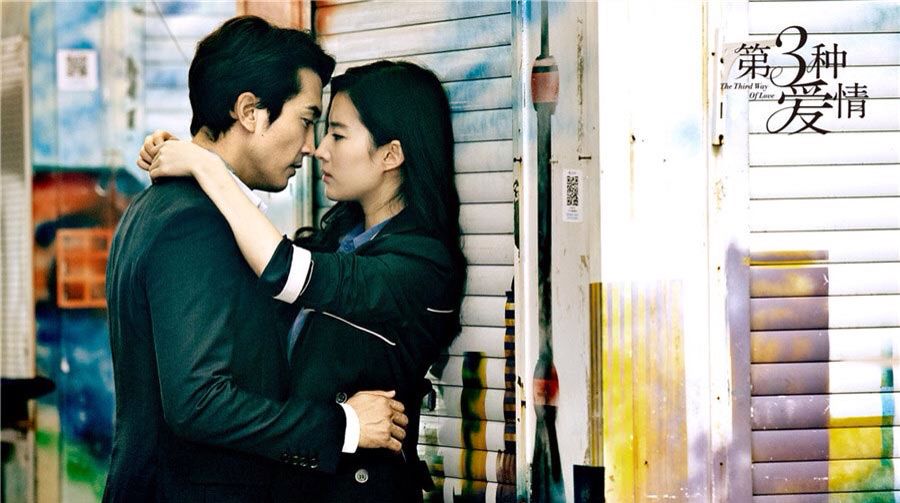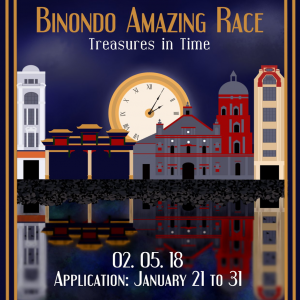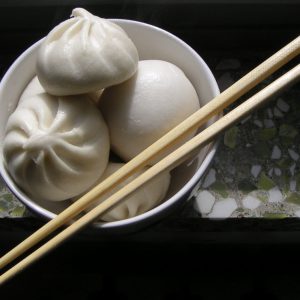Written by Hazel Lam. Edited by Matthew Yuching and Denise Joaquin.
The Third Way of Love (第三种爱情) revolves around an intelligent, beautiful lawyer, Zhou Yu and rich CEO, Lin Qizheng. Zhou Yu (Liu Yifei) meets Lin Qizheng (Song Seung-heon) on three different occasions, constantly meeting each other over the course of a few days. They meet once on a plane, the second when she confronts him about her depressive younger sister’s unrequited crush on him, and the third for a pro bono client of Zhou Yu’s who has unpaid compensation from Zhilin Group, Lin Qizheng’s heavy industries conglomerate company.
When Zhilin Group is looking for a new legal firm, Zhou Yu’s boss convinces her to use her connection to Lin Qizheng to get the job which her small firm eventually acquires. Zhou Yu specifically notes that she doesn’t want personal feelings to get entangled with their legal partnership after Lin Qizheng fails to court her twice. When Zhou Yu accompanies him on a business trip to Shanghai, she eventually falls for him and they end up together. However, their relationship, as Zhou Yu demanded, is never kept exclusive and she’s against going through with marriage. As Zhilin Group’s company goes bankrupt from Lin Qizheng’s elder brother’s embezzlement, Li Qizheng is shackled to his responsibilities as CEO and is subjected to the whim of his family and business partners to help his company come back from financial crisis.
Confronted with numerous factors pinned against them, is there love solid enough that they would see it as something to pursue? Or do all the forces that come at them provoke uncertainty and push them to drift apart? Love is complicated, and as the film points out, it is broken up into the three ways: the first is fairytale-like yet unreal, the second is real but troublesome, and the third is a mystery never revealed throughout the movie. Will their relationship end the same way as the third, never knowing, mourning what could have been for them?
The Third Way of Love (第三种爱情) serves as another joint production from China and Korea. The director John H. Lee (李宰汉) brings his Chinese background and lets the viewer see it through the Korean lens. He approaches the film using the characters found from the Chinese setting, especially the country’s busy streets, yet incorporates an emotional approach and a storyline fit for Korea’s statement dramas. The story may be a typical melodrama, but it introduces a charismatic leading actress different from a stereotypical love story’s female protagonist; she has her own strong will and mindset to determine her own choices. The actress herself has a strong affinity of expressing her emotions and connects to the audience on a whole different level. On the other hand, the male lead, albeit working with the handicap of the language barrier, manages to work as well as any Chinese actor. He holds up his own as a Korean actor, conveying his own emotions subtly yet effectively, which is reminisce of the Korean standard for actors of the country’s dramas.
The film takes on an ambitious project with the story and scriptwriting. It could have been that the scriptwriters could have ironed the script out, careful not to rush and impose the quick pace of the plot; and the actors working opposite each other lacked the natural spark between them. Individually, the lead actors commit to the role, yet the chemistry between them is absent. Overall, the film succeeds in the objective of an emotion-packed melodrama that incites sympathy for the disposition of the characters.
The Third Way of Love (第三种爱情) was released last September 25, 2015 in China and May 19, 2016 for South Korea. This will also be shown in this year’s Spring Film Festival hosted by Ateneo Celadon from January 30 until February 5, 2019 at the Shangri-la Plaza.
Photo header retrieved from Screen Daily




